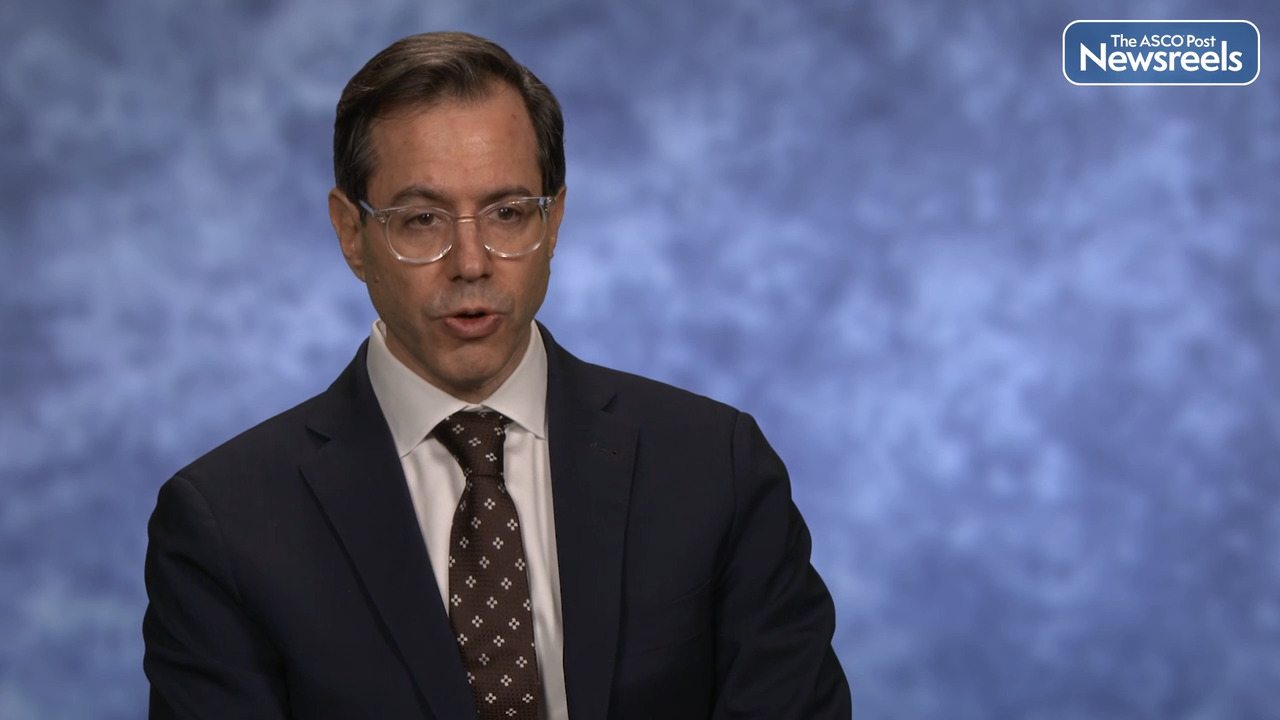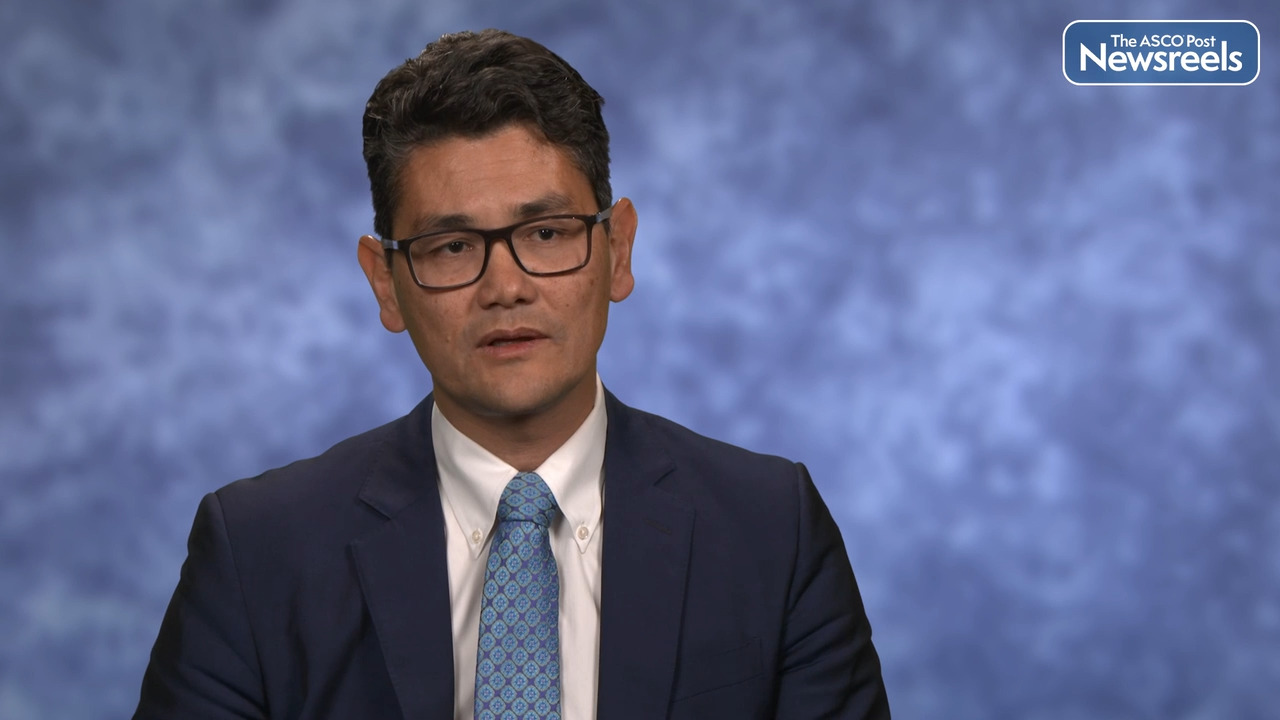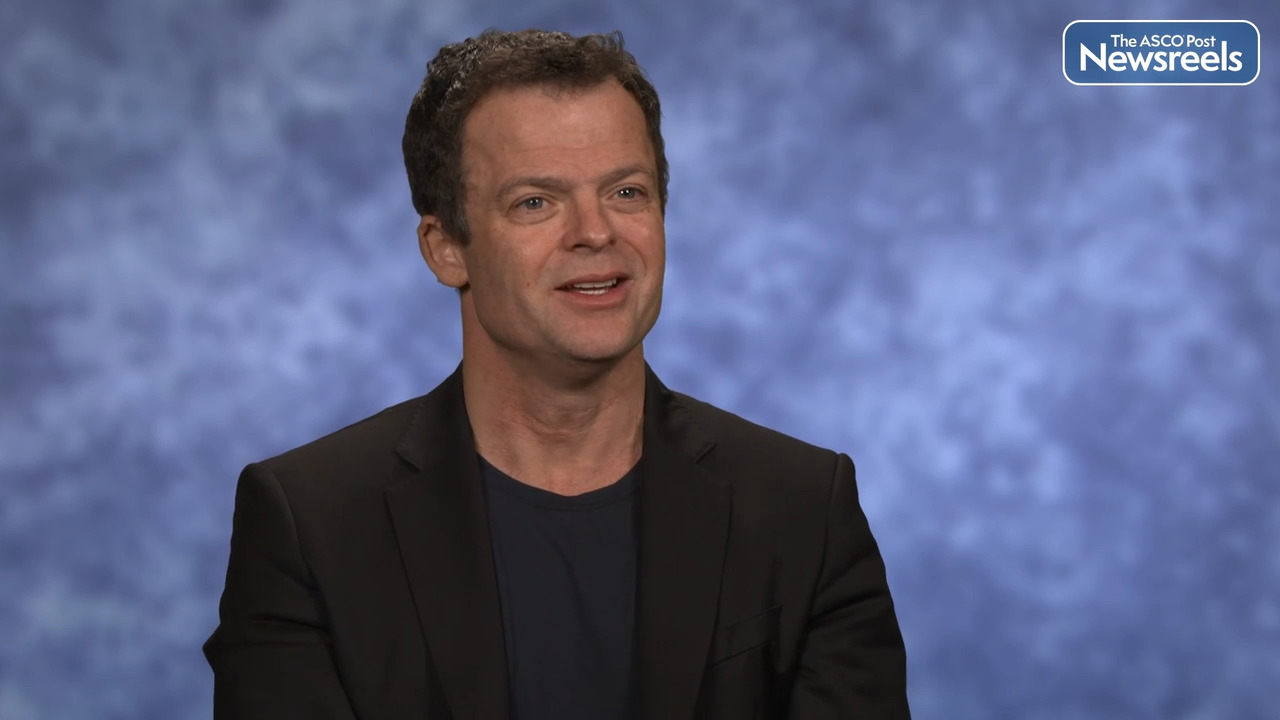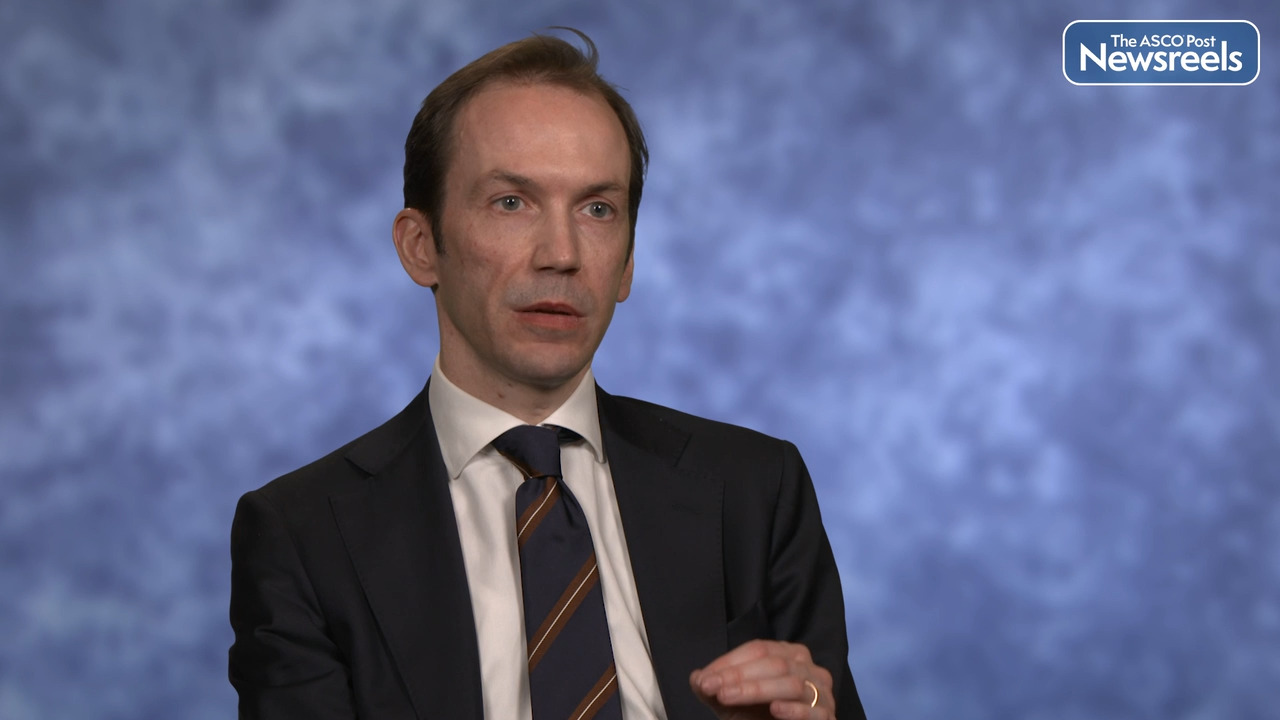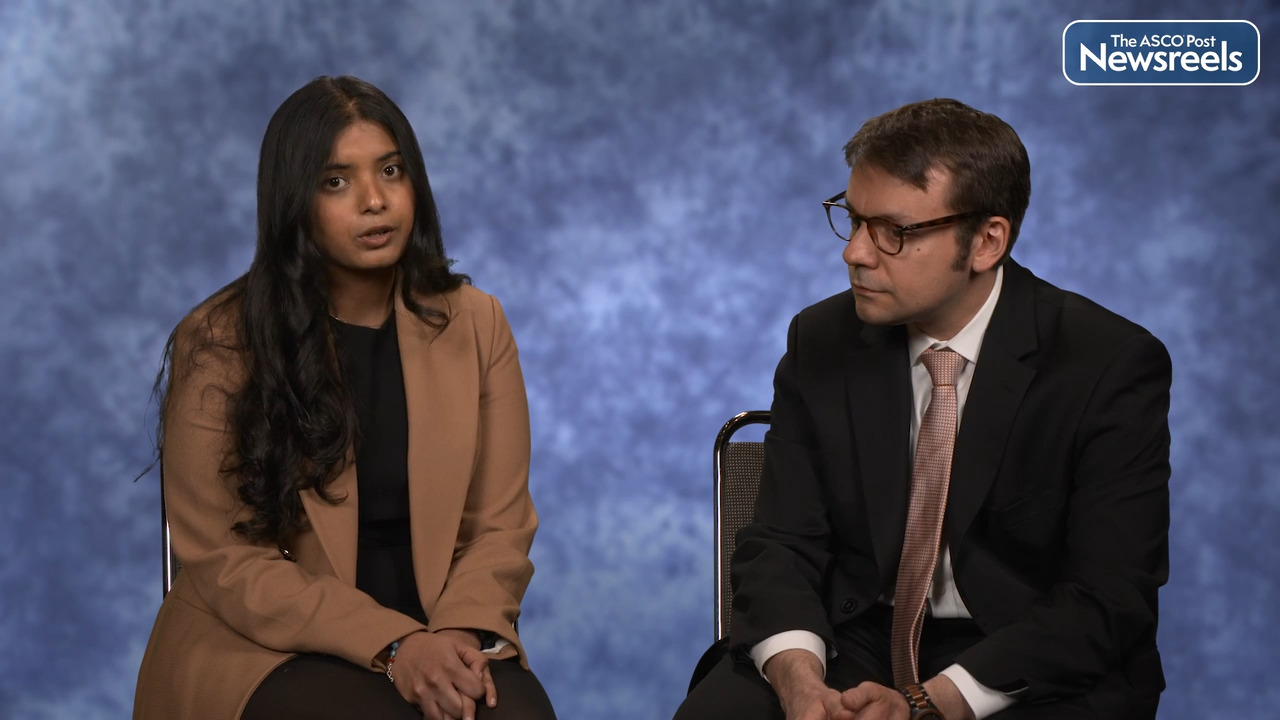Daniel P. Petrylak, MD, on Urothelial Cancer: Phase II Trial Analysis of Sacituzumab Govitecan-hziy in Metastatic Disease
2023 ASCO Genitourinary Cancers Symposium
Daniel P. Petrylak, MD, of the Yale Cancer Center, discusses a primary phase II analysis of the TROPHY-U-01 study, cohort 2, which evaluated sacituzumab govitecan-hziy in platinum-ineligible patients with metastatic urothelial cancer that progressed after prior checkpoint inhibitor therapy. (Abstract 520).
Transcript
Disclaimer: This video transcript has not been proofread or edited and may contain errors.
The treatment of metastatic urothelial carcinoma has evolved over the past 10 years and really has come a long way. Around 2010, if a patient had metastatic bladder cancer, there were two options for platinum eligible patients, those included the MVAC chemotherapy regimen as well as gemcitabine and cisplatinum. Carboplatinum and gemcitabine was considered a standard of care for those patients who were not eligible to receive cisplatin based chemotherapy. Unfortunately, once a patient progressed after any of these regimens, the median survival was about six months. With the use of checkpoint inhibition therapy, as well as the ADCs or the antibody drug conjugates that are showing significant activity in urothelial carcinoma, we've been able to treat patients that have been otherwise refractory to treatment. So we do need more treatments for the treatment of refractory urothelial carcinoma, as well as platinum ineligible urothelial carcinoma. And that was the point of the second group of the TROPHY study.
So we took patients who were ineligible to receive cisplatinum and treated those patients with Sacituzumab govitecan. We found that the response rate was 32% in all patients treated. Additionally, we found that in those patients who did not receive either prior chemotherapy or enfortumab vedotin, that the response rate was more than 50%. The toxicities that we observed with this study included neutropenia as well as diarrhea, and these were consistent with what was reported with the first cohort of the TROPHY study. So in summary, Sacituzumab govitecan has activity in platinum ineligible urothelial carcinoma, and further studies are being performed to look at the combination of Sacituzumab with checkpoint inhibition therapy. Additionally, there are studies that are ongoing with Sacituzumab combined with cisplatin in cisplatinum eligible patients. So this drug can form the core for the development of future therapies for refractory, as well as first line urothelial carcinoma.
The ASCO Post Staff
Matt D. Galsky, MD, of the Icahn School of Medicine at Mount Sinai and Tisch Cancer Institute, discusses final overall survival data from the phase III IMvigor130 study, which compared atezolizumab versus placebo, both of which were paired with platinum and gemcitabine in the first-line treatment of patients with locally advanced or metastatic urothelial carcinoma. (Abstract LBA440).
The ASCO Post Staff
Alan H. Bryce, MD, of the Mayo Clinic, discusses the final results of the primary endpoint of rPFS and interim results on overall survival among patients with chemotherapy-naive metastatic castration-resistant prostate cancer. The data showed that rucaparib improved radiographic progression-free survival compared with either docetaxel or abiraterone and enzalutamide in disease with BRCA1/2 alterations. (Abstract 18).
The ASCO Post Staff
Thomas Powles, MD, PhD, of Barts Health NHS Trust, Queen Mary University of London, discusses new data from the COSMIC-313 study of patients with advanced renal cell carcinoma of IMDC (International Metastatic RCC Database Consortium) intermediate or poor risk. Those who received cabozantinib instead of placebo with nivolumab and ipilimumab as first-line treatment seemed to experience improved progression-free survival. A subgroup analysis suggested the benefit was primarily in patients with an intermediate risk. Follow-up for overall survival is ongoing. (Abstract 605).
The ASCO Post Staff
Andrea Necchi, MD, of Italy’s Vita-Salute San Raffaele University and the IRCCS San Raffaele Hospital and Scientific Institute, discusses new data from the KEYNOTE-057 trial on a novel systemic therapy for papillary high-risk non–muscle-invasive bladder cancer. The findings suggest that patients whose disease does not respond to bacillus Calmette-Guérin or who declined or were ineligible for a radical cystectomy may benefit from pembrolizumab monotherapy. (Abstract LBA442).
The ASCO Post Staff
Vadim S. Koshkin, MD, and Tanya Jindal, BS, BA, both of the University of California, San Francisco, Helen Diller Family Comprehensive Cancer Center, discuss results from the retrospective UNITE study of biomarkers of response to the antibody-drug conjugate enfortumab vedotin-ejfv in patients with advanced urothelial carcinoma. Enfortumab vedotin is used widely in treatment-refractory disease, but there have been limited data available on biomarkers that may predict outcomes with this treatment. The UNITE study has now identified several potential biomarkers that need to be validated to help inform clinical decision-making and therapy sequencing. (Abstract 450).
